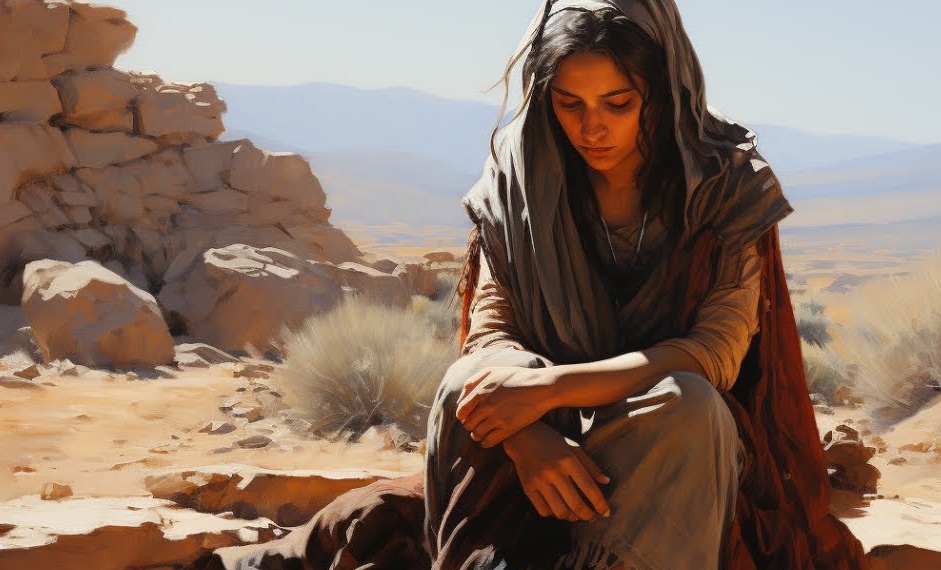Galations #5: Embracing Our Identity
October 27, 2024Pastor Travis Deatherage presented today's message, "Galations #5: Embracing Our Identity." A video of today's message is here on YouTube.
I've talked about "Abba" before a couple times: Father and What's Your Identity. Both include many familial comparisons in the Torah of God's relationship with mankind.
Let's look at "heir"...
The most common Old Testament word for inheritance is nachalah (נַחֲלָה). The part of its definition I found most intriguing was "heritage." Note the "herit" in both words. This suggests a much more non-physical, non-monetary aspect to an inheritance.
"An heir of God is someone who, through faith, receives Christ, who fulfilled the Abrahamic promise [to Abraham] of being a blessing to all nations (Galatians 3:29)" (from GotQuestions.org). We became not only saved, but a blessing to others (Abraham's descendants would become a blessing to all nations). Perhaps we should say "potentially" a blessing to others.
In the Ancient Near East (ANE) world of the Torah, a patriarchal society is all there was. The sons, particularly the firstborn son, did the inheriting of a father's property. This did not preclude, however, a more gender-neutral use of the term heir when it came to inheriting anything from God. Inheritance then refers to many things: blessings, promises, belonging, covenant, favor, special relationship, and identity.
The inheritance "laws" of the ANE were seen as the best way to preserve the entire family, not just the males.
Even the ANE-typical process of heirship is often changed by God in the OT. Younger sons are chosen (e.g. Jacob over Esau). Unexpected individuals are chosen. God made the notion of heirship of a land, the Promised Land, a far more global thing.
"While Jewish inheritance laws were specific and complete (Numbers 27:8-11), almost all references to inheritance in the Old Testament are theological, not legal. In the theological sense, to inherit means to 'receive an irrevocable gift' with an emphasis on the special relationship between the benefactor and the recipients. Unlike legal inheritance, the benefactor, God, does not die, yet he provides material and spiritual blessings for his people." (from BibleStudyTools.com). The Promised Land is the key example.
Numbers 18:20 reveals an interesting God-centered angle on inheritance. God is speaking to Aaron, head of the Levite tribe: "The Lord said to Aaron, "You will have no inheritance in their land, nor will you have any share among them; I am your share and your inheritance among the Israelites." God clearly speaks of Himself as their inheritance.
Bonus
 A Visit with St. Nicholas
A Visit with St. NicholasIf you'd like to have St. Nicholas visit your group, class, etc. and share his story, there's no time quite like the days around December 6th - St. Nicholas Day - to do that!
Years ago, I developed a 1-man presentation wherein St. Nicholas tells his own story. It's primarily based on Bill Bennett's book, The True Saint Nicholas. Another good book (novel) by Glenn Beck is The Immortal Nicholas.
In approximately 45 minutes, Saint Nicholas will tell of his childhood in Patara, his days in the priesthood, becoming Bishop of Myra, and many of the tales and stories along the way during his life and after, all the way to the present day.
For more info: Saint Nicholas Tells His Story.
St. Nicholas was very good at one of the best attributes to carry: gratitude. One of his favorite phrases was "Thanks be to God!"
Contact: StNick@jf2.com
Bonus2
Who was Keturah?
 See Genesis 25:1-6.
See Genesis 25:1-6.Following Sarah's death (probably, the language isn't entirely clear), the finding of a wife for Isaac, and at age 140, Abraham married Keturah and had six sons: Zimran, Jokshan, Medan, Midian, Ishbak, and Shuah. The verses above include mention of the grandkids' names from these sons. While Isaac got "the inheritance," these six sons got "gifts."
You might recognize the name Midian. From him came the Midianites. It was a Midianite woman that Moses marries and from whose father, Jethro, Moses learns much as to how run a society. Some believe that all six sons led to eastern Arabian tribes.
Some think Keturah was, in fact, Hagar, the concubine with which Abraham had Ishmael way back when Sarah, Abraham's wife, sent Abraham to her servant, Hagar, in order to have a child which was needed, she thought, for all the descendants Abraham was to have. This is certainly possible. But there is contradictory evidence. In the Book of Jubilees, it states that Abraham waited until after Hagar's death to marry Keturah. On the other hand, 1 Chronicles 1:32 refers to Keturah as Abraham's concubine.
Some suggest that Abraham was still hedging his bets for descendants! If true about Abraham's intention, it may have backfired as some scholars think the offspring of Keturah "perpetually menaced" Israel.
Why is this little information about Keturah and sons here at all? What's the big meaning? Some suggest that it's to encourage having children for as long as one can. Another possibility is that a widow(er) should wait until his/her own children are married before seeking a second spouse of their own.
Prager suggests that this is probably not chronologically in the right place, rather actually took place years earlier. He agrees with the importance of Midian and his descendants, including Jethro. Prager also notes the importance of describing how these other nations came to be. This also points to the Torah's antiquity. It is not likely that a later Jewish writer would claim such kinship with a hated nation. Abraham's treatment of these sons, while not equal to Isaac, shows generosity. Sending these six sons away also reflects Abraham's fear of having these other tribes too nearby and thereby distract Isaac's descendants from The Way.